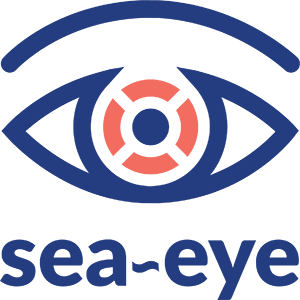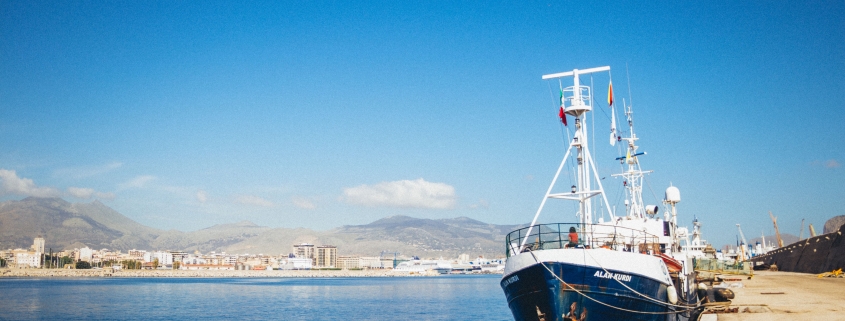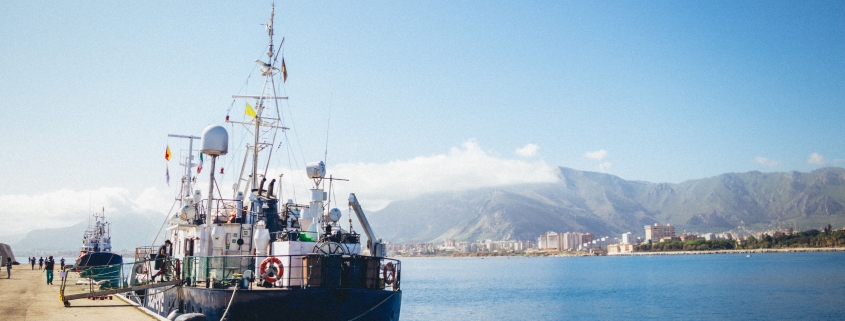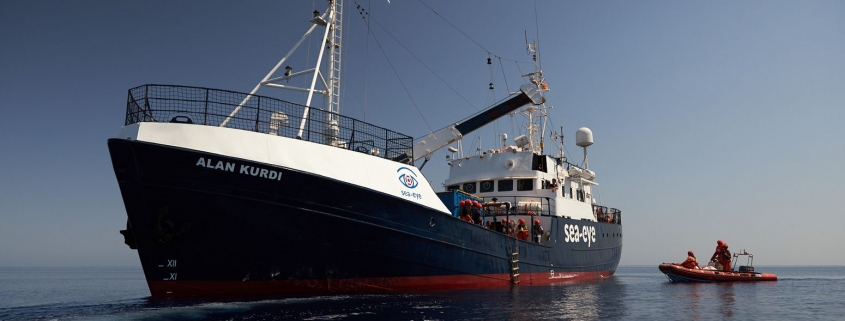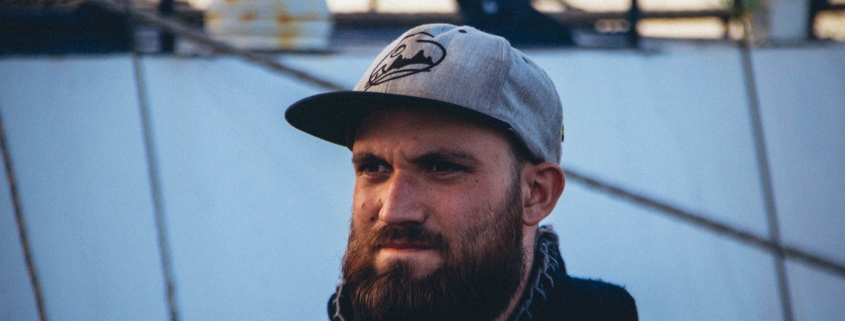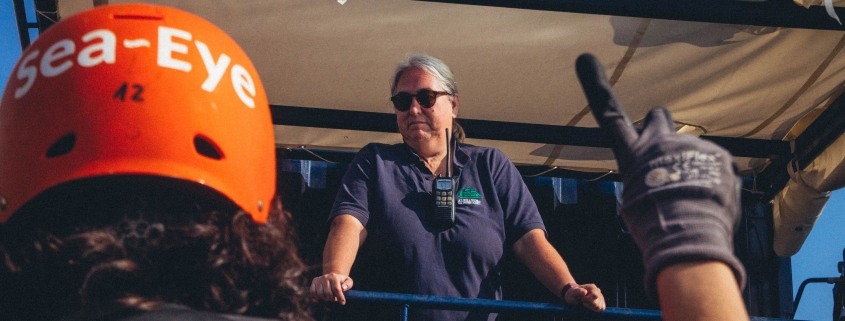Italy has been blocking our rescue ship ALAN KURDI and the Spanish ship AITA MARI for two weeks. At the same time people are dying in the Mediterranean Sea. Let us change this and sign the petition for the release of the ships.
On Tuesday evening Italian authorities arrested the ALAN KURDI in the port of Palermo. The grotesque argumentation for this is met with incomprehension not only by us. The German authorities also have no understanding for this action.
At last! After 36 days at sea the ALAN KURDI is allowed to moor in Palermo. However, before the crew can disembark, some safety requirements must be met. Meanwhile, we ask ourselves, what happens to the people we saved?
Our human rights observer, Stephen, looked into the eyes of the rescued people and spoke to them about their flight. They talked about their motives and the many cruelties they had experienced. To deal with this, Stephen has his own technique.
Interview with Bärbel, Captain of the ALAN KURDI
Whenever I think of you, the old german nursery rhyme comes to my mind: “We anchored off Madagascar and had the plague on board”. Are there parallels?
I have to think more of Berthold Brecht “(…) a ship with eight sails and fifty cannons will be berthed at the quay”. But in all seriousness: I am annoyed at the moment and personally, I think the measures are unnecessary, because I am fairly sure that we do not actually have the plague or Corona on board.
But nerves are still on edge?
Yes, we just do not know what is going to happen. Instructions sometimes change day-by-day.
Is it then even possible for a Captain, who is bearing the responsibility after all, to sleep at night?
Well. Now again, yes. When the guests were on board, it was indeed very, very tough. But once the situation was solved and they were handed over to the Italian Red Cross, the tensions fell. Now, there is only the crew on board, and it functions great.
Is it very painful to be condemned to inactivity now?
When I read that boats with refugees left from Libya again and no one is being saved, then the rage is coming of course. While we are sentenced to doing nothing here, people are drowning there. An unbearable situation.
Suppose you had three free wishes when it comes to sea rescues – what would they be?
Greater support from the governments for civil sea rescues, functioning official sea rescue efforts, that handle the majority of this job, and a point of access where people can be brought – regardless of whether they were saved by civil organisations, commercial ships or indeed by official forces. This undignified haggling, this situation here on board until the distribution is finally decided, is tough to endure.
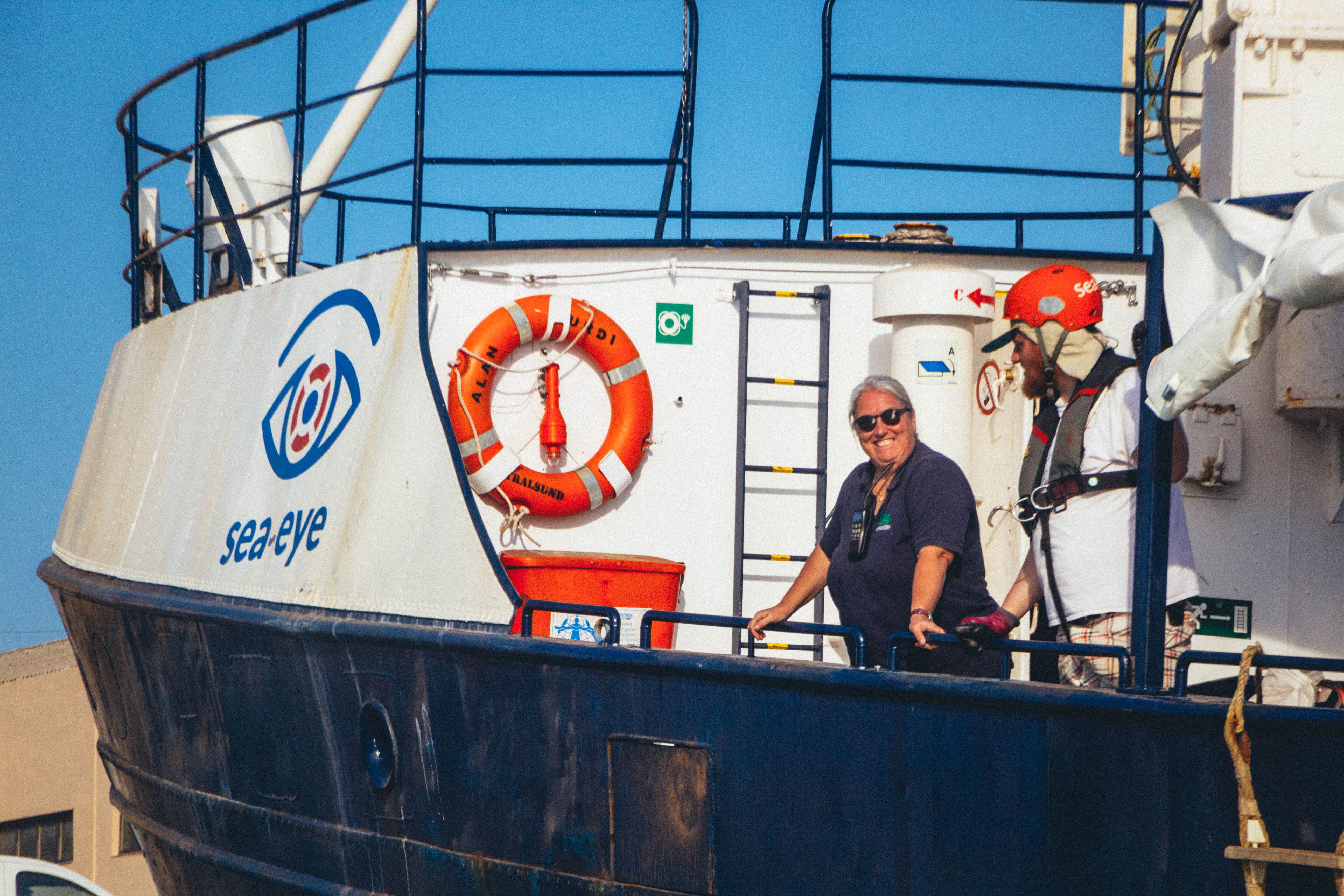
The psychological toll is surely immense, how do you deal with it?
We have extensive debriefs and spoke a lot with each other. As long as the rescue is ongoing and the people are on board, we are of course totally tense. We work almost around the clock and the few minutes in between are used for sleep. There is not much time to think. But from the moment that the refugees are off the boat, we start processing things. For this, we were given professional help from Sea-Eye. This time, unfortunately, only via video conference.
What comes next after the quarantine?
The quarantine is technically over today (Saturday). But it is the weekend here, and we can only get into the harbour if someone is there to do the Coronavirus test with us. And this after we have spent 14 days cut-off from the outside world on board. If they then find out that we do not have Corona – which, by the way, takes again 24 hours until the results are in – we can start disinfecting the ship, that takes another 48 hours. And when this is done, we are looking for a port where the ALAN KURDI can be handed over to the next crew.
Whether we then have to go again into quarantine in Germany is not entirely clear yet. Probably this will differ from state to state.
Are you at all afraid of Corona?
No. The likelihood that we were infected with Corona is extremely low. Seafaring is among the ten deadliest jobs in the world, so I am much more afraid of other things. The danger, for example, that I will suffer a stroke on board is much greater. And that we could not treat on board with our means.
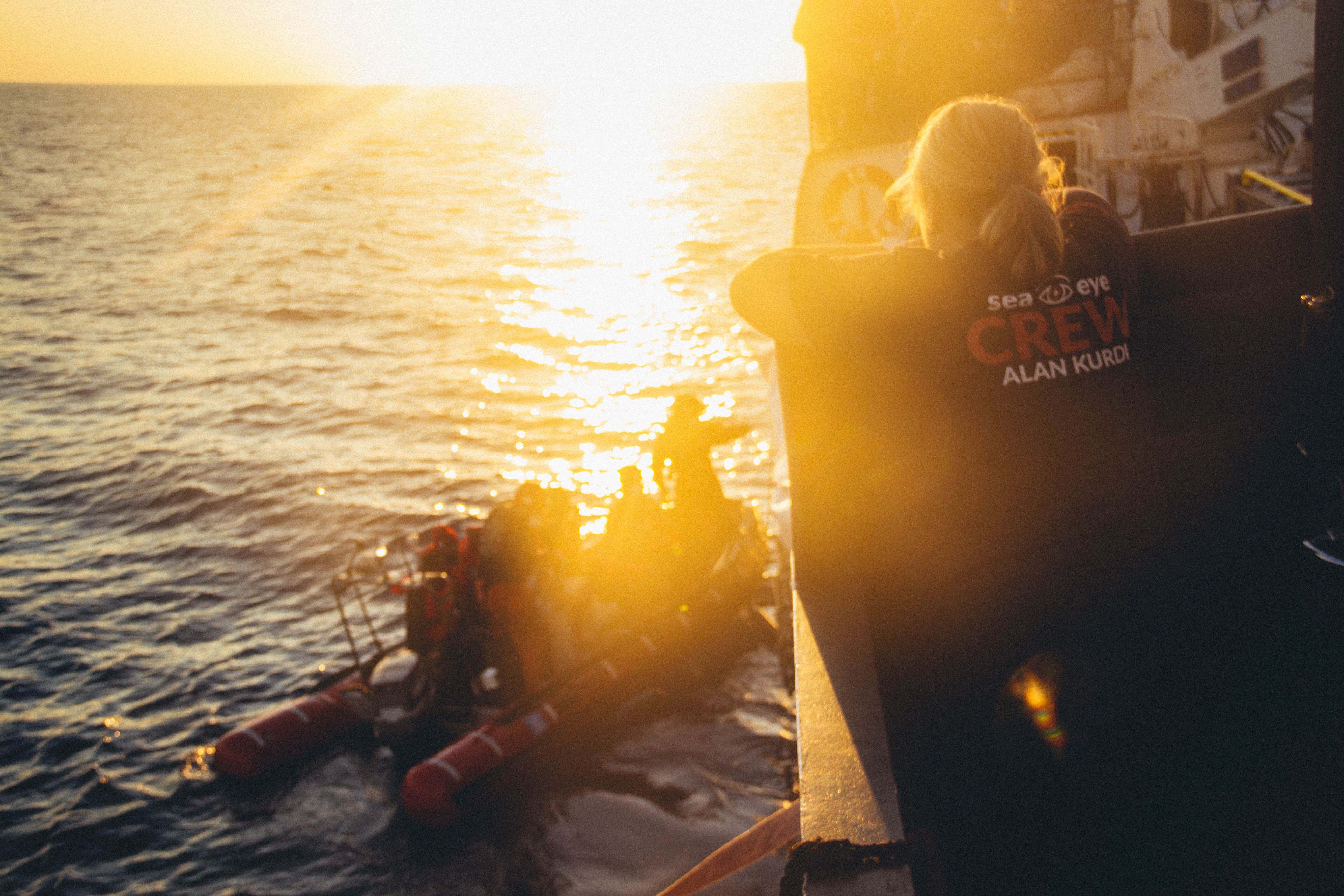
What is the first thing you do once you are back at home?
Calling a shipping company to tell them that I can start my new job. Through the quarantine and this whole situation, my vacation has decreased to zero. From next week, even into the negative.
Very professional. Is there a return for you to the ALAN KURDI?
I can definitely imagine that, yes. I am now for the second time already on a sea rescue mission and also this situation cannot faze me.
What personal protection mechanisms do you have that the images do not follow you in your dreams?
On the first mission, the Libyans’ move to point guns at us, to shoot into the air did impress me a lot. This time not so much anymore. I thought: They shot into the air the last time, and if we show cojones (balls) now, we will make progress.
With this in mind, let us show that. Thank you so much for the talk!
(Interview: Martin Geiger)
Donation
Donation account
Recipient: Sea-Eye e. V.
Bank: GLS Gemeinschaftsbank
IBAN: DE06 4306 0967 1311 9422 00
BIC: GENODEM1GLS
